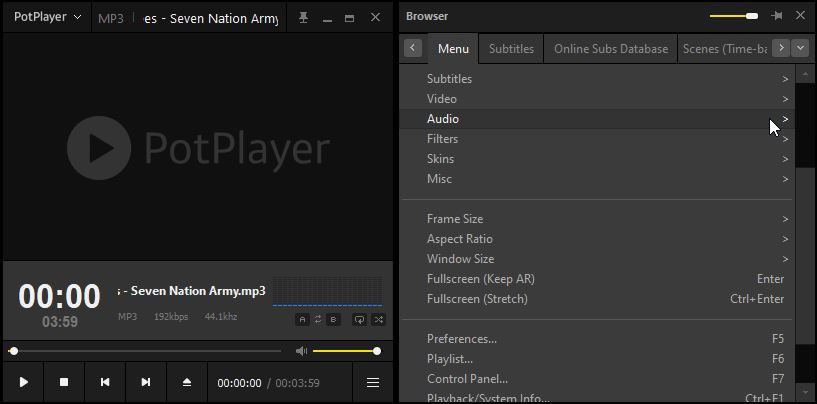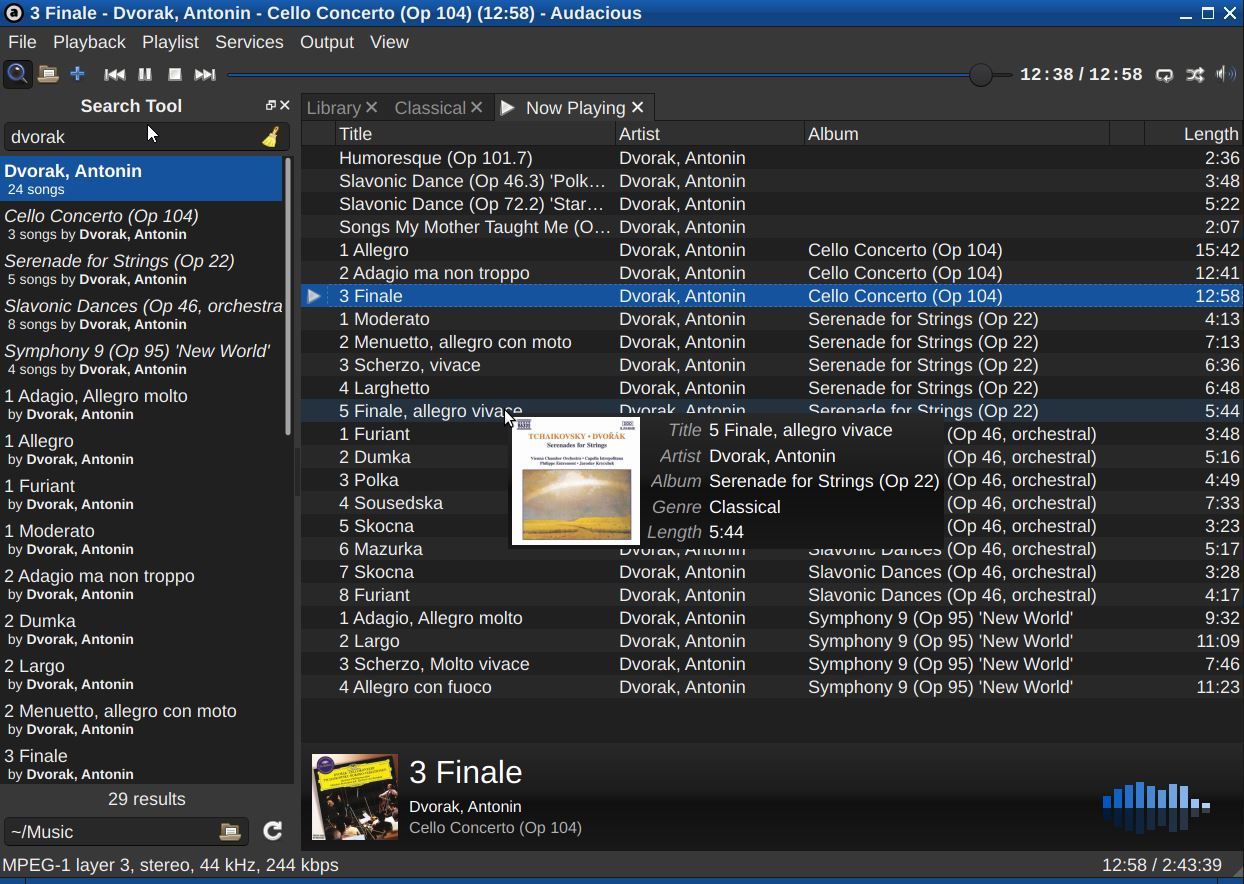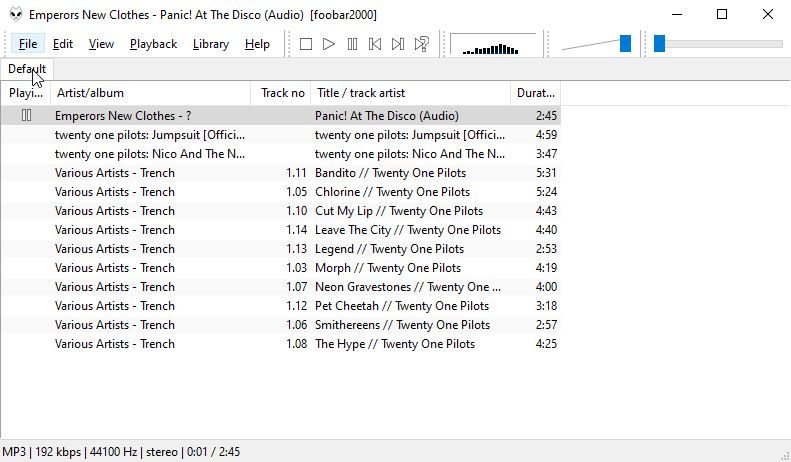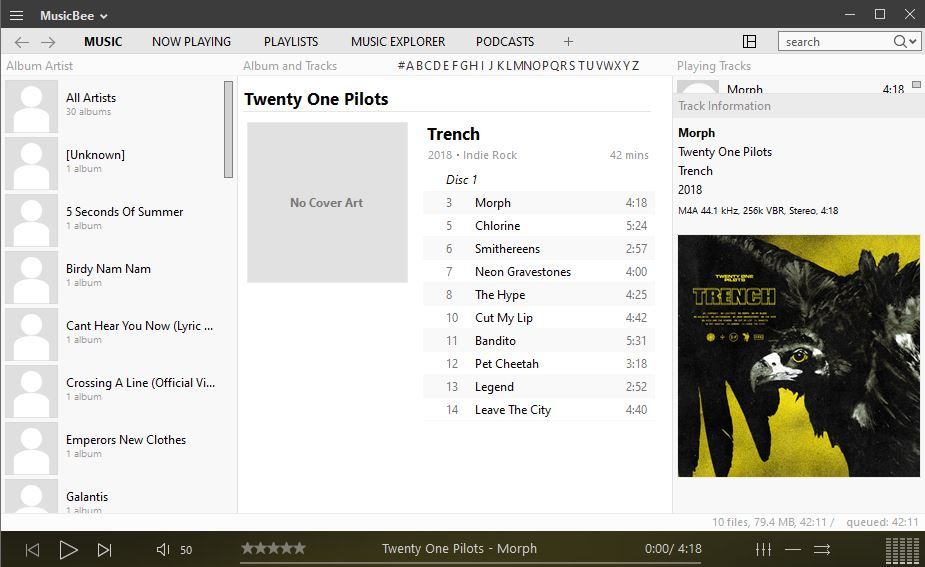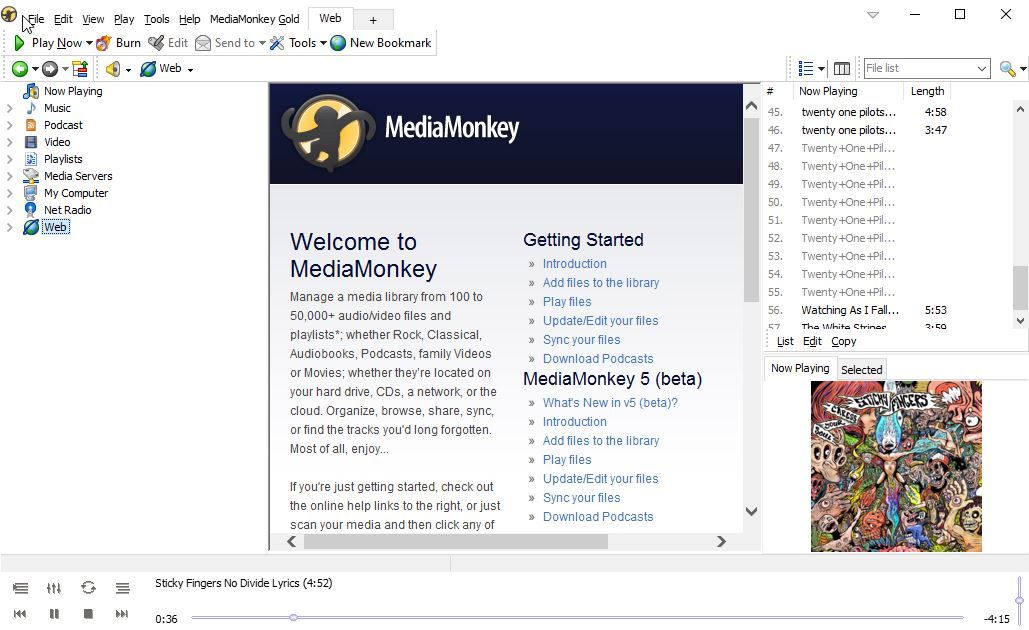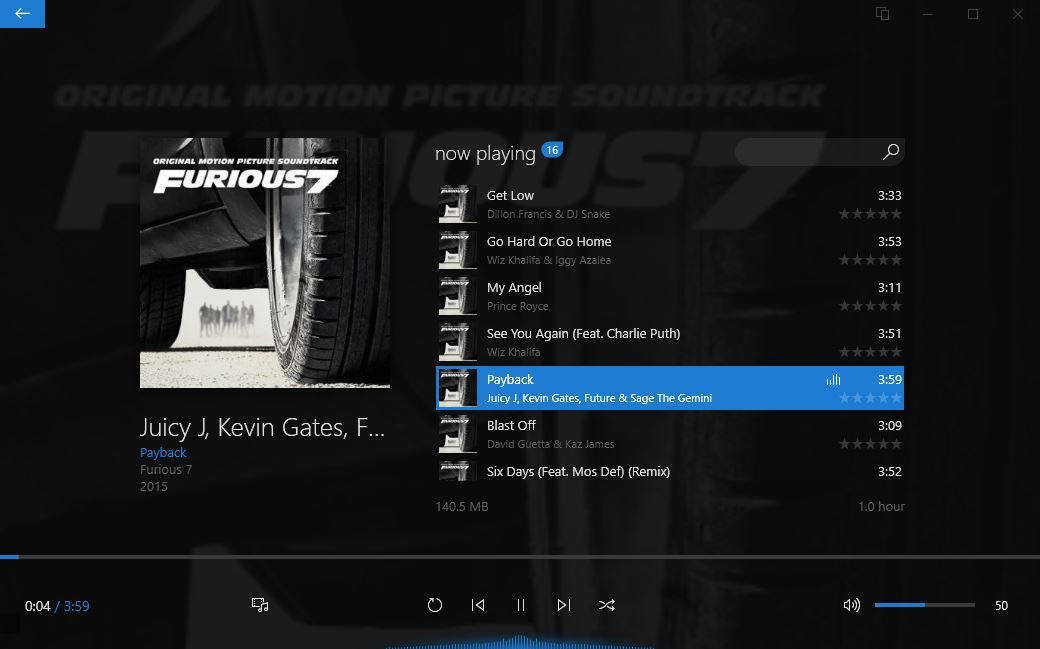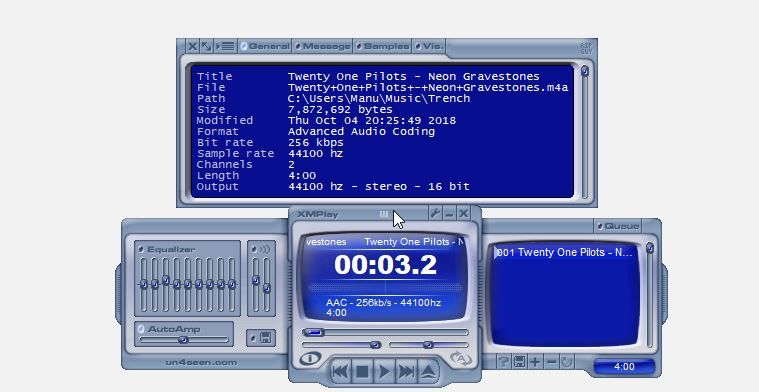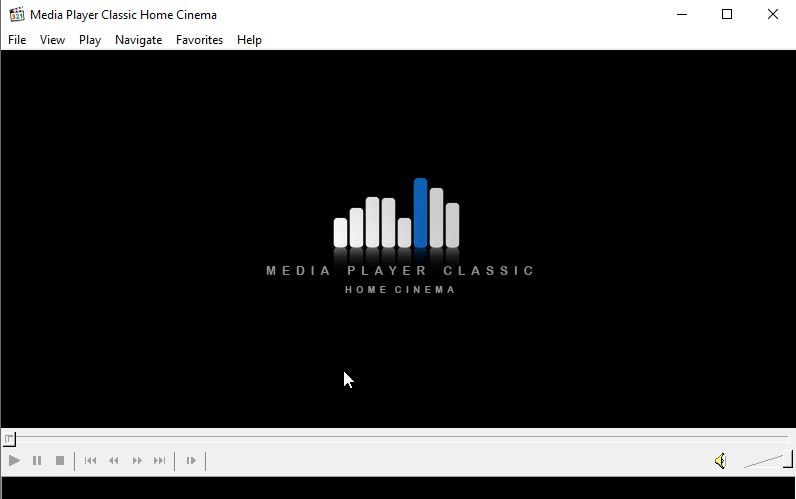In the age of music streaming services, local media players have taken the back seat. But for users who have an enviable collection of music locally stored on their computer, a good music player is essential.
Unfortunately, most music players tend to be heavy and cluttered with features that no one really uses. These extra features eat into your computer's resources, resulting in sluggish performance.
But, there are some music players that are feature-laden while being extremely lightweight. So, here are the best lightweight media players for Windows 10.
1. PotPlayer
Even though PotPlayer has hardware acceleration, it doesn't take a toll on your system's resources.
The UI makes navigating through your music library a breeze. The boxy design reminds one of Winamp. All audio-related features can be found under one section, eliminating the need to spend time looking for them in different menus.
PotPlayer also packs advanced features including the option to switch between sound cards, nose reduction, and support for Winamp DSP plugins.
Download: Windows (Free)
2. Audacious
Audacious checks all the boxes when it comes to choosing a functional and lightweight music player for Windows.
The installation file size is less than 1MB. In addition, Audacious is open source and frequent updates ensure users have a bug-free experience.
Don't let the small size fool you, Audacious comes equipped with an equalizer and audio effects. Furthermore, there are a plethora of plugins that can fetch lyrics for the current song, and display a VU meter amongst other things.
Users can create custom playlists and search for specific songs in their music library using the Audacious media browser.
Download: Windows (Free) | Linux (Free)
3. Foobar2000
Foobar2000 is one of the most popular free music players for Windows. And not without good reason.
The UI, which is easy on the eyes, is completely customizable. Foobar2000 has an in-built equalizer, and a media management tool to easily organize your music library. Users can also create their own playlists and sort music based on the artist.
The music player supports all popular audio formats ranging from .mp3 to .AIFF.
Due to its open-source nature, users can extend the functionality of foobar2000 using third-party plugins.
Download: Windows (Free)
4. MusicBee
Another popular service, MusicBee is the most visually appealing music player on this list.
In addition to its visual appeal, the service also packs a lot of features. These include the ability to sync your music across multiple devices, Groove Music support, and last.fm scrobbling support. There are plugins available that add even more features to the service, too.
The Groove Music integration is especially useful as it allows users to add their existing playlists to MusicBee. Additionally, you can also preview songs before buying them.
Surprisingly, MusicBee provides all these features while consuming only 25-70MB of RAM.
MusicBee also comes with a portable package that lets you enjoy the application without installing it.
Download: Windows (Free)
5. MediaMonkey
MediaMonkey is a music player that has largely been under the radar. But it does deserve a mention because it is easy to use and lightweight.
Unlike other music players in this list, MediaMonkey has an extra focus on organizing your music library. The application can look for missing album art, tags, and album names for a more complete media library. Users can create and edit automatic playlists as well.
When it comes to playback, MediaMonkey supports all popular audio formats.
In addition to this, MediaMonkey comes with a handy statistics feature that allows you to view and export information about your music library.
The paid version of the feature contains extra features such as unlimited MP3 encoding and an automatic library organizer.
Download: Windows (Free) ($24.95 for MediaMonkey Gold)
6. Dopamine
Looking at Dopamine's UI, it can almost be mistaken for Groove Music.
But behind the modern-looking UI, lies a simplistic, open-source music player. Even though it isn't as feature-packed as the rest of the entries in this list, Dopamine gets the job done.
You can use it to organize your music library and play your favorite but don't expect advanced audio features from Dopamine. The lack of advanced features makes it one of the lightest music players available for Windows.
The application comes with a portable release as well.
Download: Windows (Free)
7. XMPlay
XMPlay is by far the lightest music player available for Windows.
This is due to its no-nonsense UI along with a file size of 380 KB. Impressively, the developers have managed to include an equalizer and a library management service in the music player.
In addition to this, XMPlay supports all major audio formats along with gapless playback. The media player also supports audio streaming from the internet. In fact, you can use XMPlay to scan specific webpages for playable files.
Using plugins, you can also add visualizations and other features to the media player.
Download: Windows (Free)
8. Media Player Classic Home Cinema
Media Player Classic Home Cinema (MPC-HC) is a much-loved media player that was widely used in older versions of Windows.
Even though its development stopped back in 2017, it still remains one of the best lightweight media players for Windows. It doesn't compromise on features as well.
MPC-HC supports all popular media formats and has a media browser.
The media player is especially useful for users who own an old computer as it allows them to watch movies on older CPUs. Additionally, RAM usage is usually less than 20 MB when playing audio.
Download: Windows (Free)
Conclusion
When it comes to music players, more features doesn't necessarily mean a better experience.
Additional features eat into your computer's memory and CPU. The average user doesn't require those features in the first place. That's why a lightweight music player is always recommended over traditional ones.


